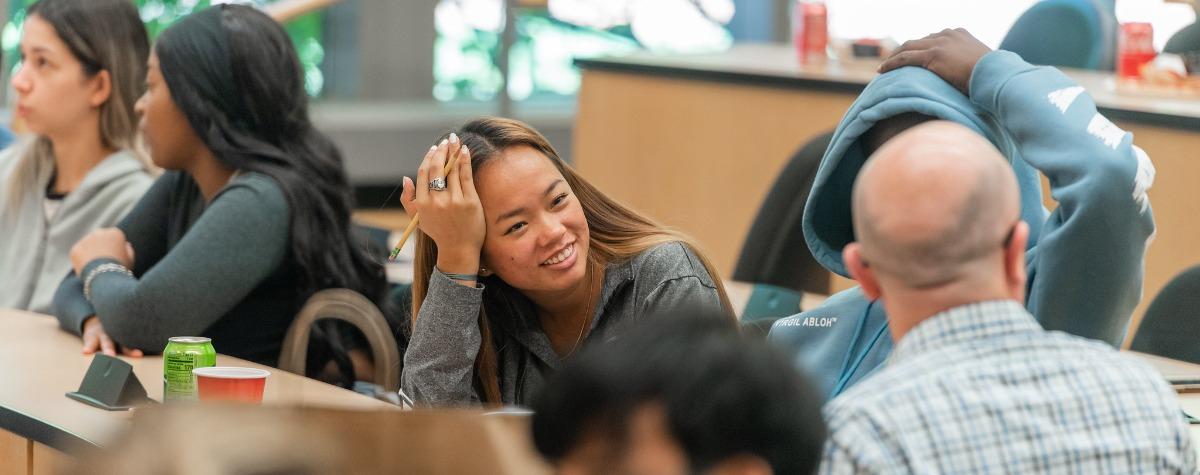Writing Program Details
The Writing major benefits students who are interested in careers in writing, editing, or publishing, as well as students who wish to explore creative writing or strengthen their writing skills while pursuing additional studies in other disciplines.
This major prepares students to write fluently in many creative and professional contexts. You will learn the importance of the writing process including meeting deadlines, working collaboratively in a creative environment, and producing high-quality final written products.
All students working toward a Writing degree are required to complete a three-credit
internship in our University Writing Center or at another site approved by the Chair of
Writing and Narrative Arts.
Employment Outlook
As a writing major or minor, you'll gain proficiencies required for a variety of future academic, career, and creative endeavors. Recent graduates have pursued careers as textbook editors, copywriters, playwrights, and sports writers.
Program Highlights
Woodcrest
-
When you major in Writing, you will cultivate, edit, and contribute your unique talent to Woodcrest, Cabrini’s nationally recognized arts and literature magazine and consistent winner of the Columbia Scholastic Press Association’s highest honor, the Crown Award. The online version can be found at woodcrestmagazine.com.
Woodcrest has been identified as a national example of publication at the undergraduate level. In both its print and digital iterations, Woodcrest continues its commitment to undergraduate student creativity and expression. As the cornerstone of a vibrant interdisciplinary and cross-disciplinary Writing Program, Woodcrest is the digital hub for celebrating student voices, opinions, and artistic expression.
Slam Poetry
- You may also participate in Slam Poetry—two widely publicized open mic poetry nights held every year in partnership with the Black Student Union and Fuze poets, one of Philadpelhia's premiere slam poetry organizations.
Before you hit the stage, students participate in a poetry-writing workshop with . Students interested in participating should contact Amy Lee Persichetti, EdD.
FUSE
- The Department of English enjoys a strong relationship with the Forum for Undergraduate Student Editors (FUSE), a national organization that provides a network for undergraduate student editors and writers and their faculty advisors. An important part of FUSE’s mission is to improve channels of communication between editors of undergraduate literary magazines and to foster discussion on the improvement of the undergraduate literary community. FUSE strives to improve the undergraduate literary community and holds a national annual conference at a host institution, and everyone is encouraged to attend.
In addition, FUSE hosts a caucus at the national Association of Writing Programs (AWP) to update members, welcome new members, and convene a roundtable discussion of a selected topic.
Skills Learned
- the ability to revise and edit writing through multiple drafts—both independently and collaboratively
- the ability to engage with a literary text or other cultural artifacts, drawing upon the rhetorical, critical, aesthetic, and analytical skills appropriate for a member of the contemporary, liberally educated community
- the ability to modify voice, tone, level of formality, genre, medium, and/or structure of writing to suit a variety of rhetorical purposes and audiences
- information-literacy skills to find, retrieve, evaluate, and present information relevant to an issue or problem, using appropriate attribution
- written command of the Writing and the Narrative Arts language that reflects its potential as a communicative and creative medium
- the ability to critically interrogate the social, historical, aesthetic, and ethical dimensions of literary and cultural artifacts
